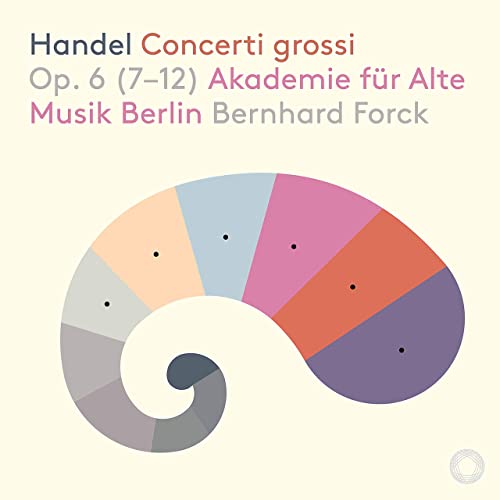Akademie für Alte Musik Berlin, Bernhard Forck
80:29
Pentatone PIC 5186 738
Click HERE to buy this on amazon.co.uk as an mp3
When I was a child the first vinyl boxed set I bought was the famous Decca recording of Handel’s opp. 3 and 6 by the Academy of St Martin in the Fields – I recently ‘rebought’ it on CD and found to my delight that it stood up very well to the passage of time, with some extremely elegant and unfussy string playing and some deeply funky continuo playing from non other than Thurston Dart. As it happens, my absolute favourite concerto in the set is number 7 with its ‘fugue on one note’, and this new recording of the second half of the set opens of course with this concerto. Although it is the composer’s opus 6, he was already 54 when it went to print – he chose the low opus number with his publisher Walsh to encourage obvious comparisons with Corelli’s op 6 Concerti grosso. Dating as they do from his late middle age, they contain a wealth of material recycled from other pieces as well as music he would go on to ‘repurpose’, and as such they make a superb introduction to the musical world of the composer. So I love the music, but did I love this recording? I liked its crispness in the faster movements and its lyricism in the slower ones, and the playing is never less than polished and elegant. Compared to the ASMF accounts, the slow movements fairly race along, but this is in line with current thinking and the music never sounds perfunctory. If I appear to be almost damning with faint praise, that is probably unfair, but if you record Handel’s op 6 concerti these days you need to have something special to say about the music, and I’m not sure that the present performers have. At the moment, my favourite modern period instrument performance is the 2008 account on BIS by Martin Gester’s Arte dei Suonatori, a beautifully poised and thought-through account of the complete op 6. Would I replace this with the present recording? – I’m afraid not.
D. James Ross
